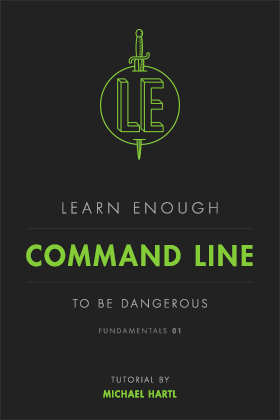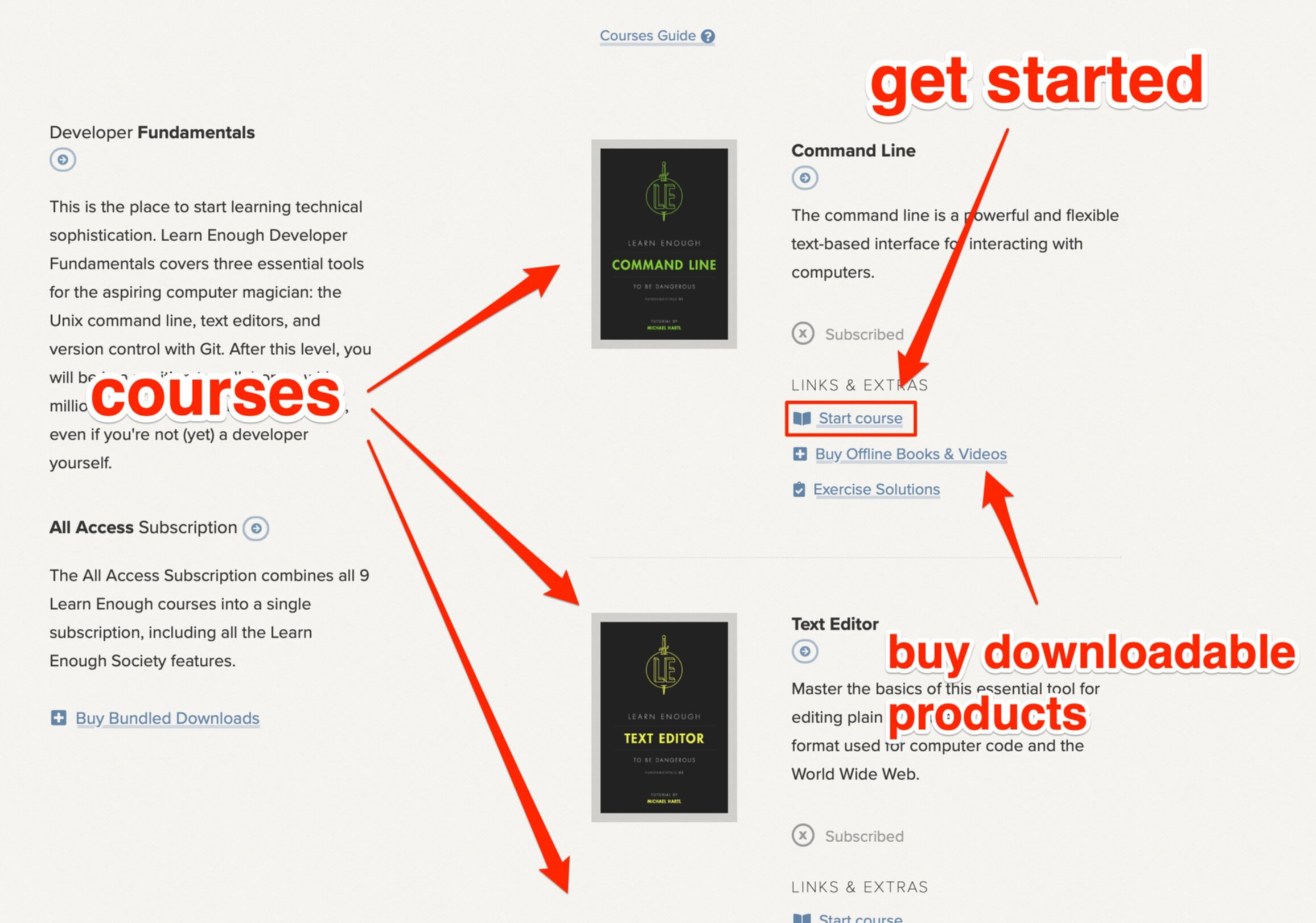
Why You Should Become A Ruby On Rails Developer In 2024
It has been 19 years since its inception, so you’d be forgiven for thinking that Ruby on Rails has long past its sell-by date. The truth is, RoR has found strength in its maturity—and it’s not going anywhere soon.
In fact, it’s safe to say that, as a would-be professional web developer, the Ruby programming language, and the Ruby on Rails framework in particular, can seriously boost your career potential in 2024 and beyond.
In this article, we’ll dive into Ruby on Rails, its uses, features, and relevance. We’ll also look at the benefits of becoming an RoR developer in 2024 by tallying demand for Rails devs and understanding the value Rails still brings to small and large businesses alike.
What is Ruby on Rails & how does it relate to the Ruby programming language?
There's no point in covering Ruby on Rails without covering the Ruby programming language first. Ruby is an object-oriented, general-purpose programming language, released in 1995, with particular benefits in the web programming space.
Rails, developed under license at MIT, is a software or package library that extends the Ruby programming language.
In essence, RoR provides libraries of ready-made components and default structures that can be compiled, extended, and modified to streamline the process of developing web apps, platforms, and web services.
If Ruby was English, Ruby on Rails might be a library of templates, phrases, and paragraphs for writing resumes, contracts, consulting proposals, reports, business plans, and more. Templates save us time and the results are well above par.
The Rails code, which gets installed on top of the Ruby programming language, is an open-source web development framework that saves developers time while producing stellar results.
Compact and elegant, Ruby on Rails is a server-side, model view controller web application framework, consisting of a collection of code libraries named RubyGem.
The framework streamlines the creation of all kinds of complex web applications in the Ruby language while facilitating the use of interfacing standards like JavaScript, HTML, and CSS, and data-transfer standards like XML and JSON.
Before we dive in, listen to these words of encouragement from Mix & Go on YouTube. He offers valuable insight and advice for aspiring Rails devs.
Is Ruby on Rails dead?
Irrefutably, the answer is “No, Ruby on Rails is neither dead nor dying in 2024.”
From Github and AirBnB to Soundcloud, Shopify, and Fiverr, millions of people interact daily with RoR-based apps, platforms, and web pages, with very few frustrations or glitches.
Where there's an RoR app in action, you can rest assured there's a Ruby on Rails specialist not far behind. While it's no match for ML and AI behemoths like Python and Django, it's still a sought-after, high-paying skill.
In fact, given the maturity of the framework and the level of engagement throughout the Ruby on Rails community, it’s likely that Ruby on Rails will outlive and outlast competitors like ASP.NET, JQuery UI, WebRTC, and more.
You’ve heard the saying, “If it ain’t broke, don’t fix it.” Well, this is certainly true for Ruby on Rails, which is very much alive and kicking.
Rails runs multiple web apps, large and robust web apps, and madly successful web apps in 2024.
What does a Ruby on Rails developer do?
As a freelance, in-house, or remote Rails developer, you will work to:
design, maintain, and develop efficient, reusable business logic and libraries in Ruby code.
design database interaction queries using the active record library.
create a Rail environment where you will maintain the database and manage handling requests.
script new web pages, platforms, services, build robust web apps, or maintain and improve existing ones, using the Ruby language and the RoR framework.
since Rails is a full-stack framework, you'd work on Ruby on Rails backend development.
integrate data storage solutions, SQL, and databases into one seamless system with your RoR devs.
integrate and connect front-end components and other web services.
implement automated testing platforms.
troubleshoot bugs and issues throughout new or existing code.
ensure that your code is scalable, flexible, and robust, boasting state-of-the-art web app services and features.
engage in various application programming tasks using Rest API, JavaScript, HTML, CSS, and more.

Why use Ruby on Rails for development?
Remember what we said about Rails’ maturity?
What this means in terms of a web application framework is a system that’s tried, tested, and proven—qualities you’d be on the lookout for if your business literally depended on it.
Other than that, key features that make Ruby on Rails perfect for development projects include:
1. Full stack
What “full-stack framework” means is that a skilled Rails developer can build a web application back end, front end, and everything in between using Ruby on Rails alone.
When you're fluent in Rails, you can safely call yourself a full-stack developer, adding some girth to your payslip.
Of course, in 2024, a full-stack Ruby web platform isn’t necessarily the done thing, and you’ll likely be incorporating plenty of HTML, CSS, Javascript, ReactJS, and other technologies as part of your stack.
However, businesses and startups still choose Ruby on Rails for its robust versatility in simplifying the repetitive and effortful elements of web development, as well as its potential for building a full stack without the need for other programming languages.
2. Reusable and scalable
The modular potential of Ruby on Rails code makes it easy to reuse or scale certain aspects and components as your goals change or expand with your business.
This is ideal for when your team wants to use Rails code on multiple projects but would rather not waste days and months reinventing the wheel.
Rails has always been about making the web app development experience funner—and that it does.
This is also a handy feature for freelance Rails devs and independent contractor devs who’re able to design and develop reusable, scalable apps, services, tools, and solutions that can be marketed and sold to multiple clients.
3. Agile and fast
Rails was developed with the simplification of repetitive processes in mind.
Its foundational paradigms include:
Convention over Configuration (CoC): this means that as long as you code according to conventions, certain defaults will be implied without the necessity for explicit configuration or coding in RoR.
Don’t Repeat Yourself (DRY): by providing the functionality to develop and reuse objects, Ruby on Rails does wonders not only for your project timeline but also for your project error log.
CoC and DRY, by providing default structures and reusable objects, minimize dev time and all but eliminate errors.
They also mean that RoR takes kindly to a fast, iterative development approach while making for easier prototyping, revisions, and improvements.
These are all features that are highly suited to Agile software development. In essence, RoR developers are Agile devs too.
In fact, Ruby on Rails has been instrumental in the evolution of modern web development practices, including the explosive rise of the Agile dev methodologies.
4. Elegant and expressive syntax
Often likened to English, and fairly legible—even to non-coders—Ruby features an elegant syntax that makes it easy to master and express yourself through all kinds of creative development endeavors.
By cutting out the technical grind, Ruby and Ruby on Rails offer Rails developers the opportunity to express functionalities that can be simple and targeted or complex and vast.
The legibility and versatility of the syntax make Ruby ideal for programming beginners looking to stay engaged and productive as they enter the realm of professional application development.
Indeed, by removing the need for heavy lifting, Ruby on Rails has prioritized and maintained developer happiness for almost 20 years.
Why should you learn Ruby on Rails in 2024?
Whether you're a beginner web developer or a seasoned full-stack Rails developer, Ruby on Rails has the potential to kickstart your career in 2024.
With so many other web frameworks making headlines, you may be under the impression that Ruby developers aren't in high demand by startups and established brands looking to dev and roll out modern web applications—but this is simply not the case.
As you'll see from the list below, the Rails Ruby framework holds many benefits for you and the company that's lucky enough to hire you.

1. Demand for Rails developers is higher than ever
At the time of writing, the hiring platform Indeed shows no less than 856 listings for “Ruby on Rails Developer,” with salaries ranging from $60,000 to as much as $180,000 per year for a lead developer.
Glassdoor lists 474 Rails jobs, with a comparable salary range.
With this number of targeted listings on a given day, it’s clear that the demand for quality junior and senior Rails developers is not being met, making RoR an ideal starting point if you’re an out-of-work dev wondering where to kickstart your career.
2. Earn top salaries as a Ruby on Rails developer
You may be under the impression that other developers, specializing in contemporary tools, other frameworks, and new technologies, earn more than old-fashioned Ruby developers, but you're in for a surprise.
The 2022 StackOverflow Survey ranked Ruby on Rails as the 5th highest paying tech stack in the world for web development—with an average annual salary of $93,000 for a Rails developer at last tally in 2022.
Talent.com sees the average Ruby on Rails developer in the USA earning as much as $60.46/hour, and an impressive $104,956 annually for an entry-level Rails developer.
The cost-effective nature of the Rails development timeline makes Ruby on Rails devs highly sought after and also allows for high salaries—because money is saved on projects.
3. Career advancement through diverse Rails functionality
Arguably more than any other framework, Ruby framework offers rapid, flexible development options across the board—front end, back end, and in between.
A sprawling Ruby on Rails driven system, with multiple web applications and services, might warrant the allocation of different developers to different parts of the existing ecosystem.
Besides that though, there is the potential for a clear upward career path as you progress from entry to mid to senior-level responsibilities.
A. An entry-level Ruby on Rails developer
An entry-level dev might set up the Ruby environment, undertaking database management, request handling, and basic web application development tasks.
Besides Ruby and Ruby on Rails, HTML, CSS, and JavaScript knowledge would also be required.
B. A mid-level Ruby on Rails developer
Mid-level devs will deal with all aspects of object orientation, business logic, application logic, architectural pattern design, and implementation.
They may also undertake application server management tasks, and database management via active record associations.
C. A senior-level Ruby on Rails developer
A Ruby on Rails senior-level or lead developer would work to create and manage all aspects of standard and non-standard database modeling, estimation, planning, and monitoring.
A senior professional web application developer in Rails would also tackle advanced Ruby metaprogramming and gem creation, advanced app deployment, benchmarking, advanced gem sourcing, design, and implementation of Rest APIs, distributed processing, and more.

4. Ruby on Rails skills are versatile for businesses
Besides its templates, gems, and scaffolding features that make it ideal for the rapid, cost-effective creation of web applications, the Ruby on Rails framework is also highly versatile for businesses.
Ruby on Rails boasts an embarrassment of riches in terms of free gems, third-party integrations, and compatibility with other frameworks—through the back end, front end, and in between.
As a full-stack framework, Ruby on Rails incorporates a sprawling base of templates, application logic and business logic functionality, and a range of features that drive its versatility through the roof.
This means an innovative Ruby on Rails developer team can create complex and novel Rails applications, PaaS, SaaS, and web apps including but not limited to:
desktop, mobile, and embedded applications and games
client-side and chat applications
web applications and APIs
automated analysis platforms
library, attendance, content, project, customer, performance, and other management systems
market platforms and multi-vendor stores
online learning and examination systems
and just about any other application, platform, or interface you can think of.
5. Engaged Rails open-source community makes upskilling a breeze
Another major factor that makes RoR a sought-after application development staple in 2024 is the vast Ruby community that comes with 19 years of consistent Rails service.
As a Ruby on Rails developer, you’ll have access to the fruits of two decades of Rails maturity. To this day, many developers create tutorials, speed up videos, guides, out-of-the-box solutions, gems, new features, and tools that are easily accessible via code Meccas like Github.
In spite of the popularity of newer frameworks, and idle chat around Ruby on Rails scalability issues and the like (which can often be remedied with experience), the Ruby community is still vibrant and engaged.
How difficult is Ruby on Rails? It's easier than you'd think, and the community spirit takes the edge off.
Not only does this community make Ruby on Rails upskilling a breeze, but savvy business owners understand that the sky’s the limit when you set out to create a new app with so many gems and ready-made modules at your disposal.
Final thoughts: how easy is it to learn Ruby on Rails, really?
It’s clear to see that Rails Ruby app development promises a harmony of interconnected parts that, while based on something mature and somewhat off-trend, function as robust and cutting edge—front end and back.
But what does it take to become a Ruby on Rails developer? What should you study to join a team of other developers actively engaged and working to create new web apps and platforms for startups and businesses, as well as managing other web server-side tasks?
The active Ruby on Rails community of both new and experienced developers, along with the intuitive nature of Rails and Ruby code, makes it easy to learn and highly forgiving for beginners.
More so than other languages, learning Ruby as a new language (and Ruby on Rails as a new MVC pattern framework) empowers web development beginners as the associated coding practices are tried, tested, and optimized for minimum effort.
Even if you are a Rails programmer noob, you shouldn't need more than a few months to a year of applied study and practice to set yourself up for a post as an entry-level Ruby on Rails web developer.

Where to start
As an aspiring Ruby on Rails developer, you may be wondering where to start. We highly recommend the “Learn Enough Ruby To Be Dangerous” tutorial.
This comprehensive Ruby guide equips aspiring Ruby on Rails programmers like you with the nuts-and-bolts dev grit you need to dive into the more lucrative aspects of RoR web and app development.
Once you’ve built up those complete Ruby skills, our “Ruby On Rails Tutorial” is your logical next step—a leap, to be more exact. It's one of the most popular Rails developer course options online.
This insanely comprehensive intro to RoR will arm you with the confidence and skills required to enter the wider world of the professional Rails developer.
If you manage a team of developers, Learn Enough for Teams boosts the skills of your junior devs and gets your senior devs quickly up to speed with the latest versions of Ruby on Rails, and more.
Start your all-access 7-day free trial today, you'll be a Rails web app developer in no time.
All Access Subscription
Get free access to all 10 Learn Enough courses (including the Ruby on Rails Tutorial) for 7 days!
Free 7 Day trial details
We require a credit card for security purposes, but it will not be charged during the trial period. After 7 days, you will be enrolled automatically in the monthly All Access subscription.
BUT you can cancel any time and still get the rest of the 7 days for free!
All Learn Enough tutorials come with a 60-day 100% money-back guarantee.











